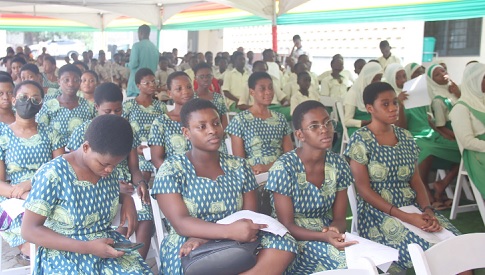Ghanaians have been encouraged to embrace their mother tongues to preserve their identity and culture and help in the promotion of linguistic and cultural diversity and multilingualism.
In the same vein, the media in Ghana has been called upon to reflect on the values and uniqueness of local languages and their exclusive use in the media space to highlight the importance of Ghanaian languages.
The call was made at a training programme for media personnel, organised by the Bureau of Ghana Languages (BGL) to commemorate this year’s International Mother Language Day marked on February 21, each year.
The training focused on the right use of languages and terminologies.
The theme for this year’s celebration: “Multilingual education: a pillar of learning and intergenerational learning,” aimed to support the achievement of the Sustainable Development Goal 4 on inclusive quality education and lifelong learning and of the objectives of the International Decade on Indigenous Languages (2022-2032).
Media, parents’ role
A lecturer and founder of Kasa Tumi-Language Wateh Foundation, Dr Nana Anima Wiafe-Akentan, who made the call, said the indigenous languages could not be appreciated if downplayed and misinformed, hence the need for the media to ensure the appropriate use of local languages.
“People take comfort and learn a lot from the media, so I will call on the media to promote our local language.
We should consider the things we show, the things we say and ensure they are appropriate, proper, good and have some traditional knowledge and are fit and acceptable in our society,” she said.
“Learning the mother language, helps one’s cognitive skills and communication skills.
So even in your education, it broadens your knowledge, your mind, makes you look wider, learn substance and tend to appreciate your culture and appreciate things around you and your environment,” she said.
Dr Wiafe-Akentan, therefore, encouraged parents to speak and teach their children the indigenous languages to help shape their behaviour and character.
For his part, the Acting Director, Bureau of Ghana Languages, Enoch Adinortey Adibuer, urged Ghanaians to speak their mother language, practise their culture and inculcate them into their children to develop the country.
Curriculum
The Director of Human Resource Management of the Ministry of Tourism, Arts and Culture, Vitus Otto Langmagne, who read a speech on behalf of the Minister, entreated the Ghana Institute of Journalism (GIJ) to reintroduce Ghanaian language studies in their curriculum to equip graduates adequately in the presentation of their Ghanaian Language programmes.
This, he said, was in consideration of the roles that the FM stations played in educating the public in local languages.
He said the ministry would support the Bureau of Ghana Languages to reactivate the Language Committees of the Ghanaian languages studied in schools to research and incorporate technical and scientific terms into these languages towards their development.
Collaboration
Mr Langmagne also urged BGL to collaborate with the Ministry of Education to publish textbooks in Ghanaian languages and encouraged Ghanaians to learn a few expressions of their Ghanaian languages everyday to enhance social integration.
Consequently, he urged the Ghana Education Service to develop a policy where the L1 is used as the medium of instruction from the Kindergarten through the lower primary level.
UNESCO
The Director-General of UNESCO, Audrey Azoulay, in a speech read on his behalf, said UNESCO was taking action to encourage the use of local languages in public services to ensure that the knowledge conveyed was taken into account.
He said they were bringing up initiatives to promote multilingualism on the internet and the airwaves to ensure access to quality information in the language in which one was fluent with was necessary for empowerment.
“To guarantee that all people, regardless of the languages they speak, have the same learning opportunities and the same opportunities for the transmission of knowledge, that is the aim of this international day,” he added.

